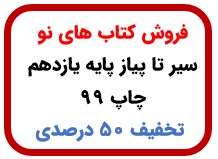The life cycle of internationalization
پنجشنبه , 21 شهریور 1392 ساعت 14:24 دسته بندی :دانلود مقاله :
The life cycle of internationalization 2013
نویسندگان :
Marjorie A. Lyles , Seung Ho Park
چکیده :
A commonly acknowledged belief is that globalization–—
the deepening interconnection between
nations and societies–—has multiple facets: economic,
political, financial, marketing, social, and institutional.
As applied to the context of emerging
markets, these different facets congeal in a progressive
pattern of strategic entry decisions made
by erstwhile multinational firms, and recently, by an
increasing number of stalwart local firms. While this
pattern is not necessarily sequential or deliberate,
it accentuates strategic decisions in the life cycle of
internationalization.
Once considered to be bastions of production and
global sourcing, emerging markets were favorite
destinations, particularly when labor costs were
much lower and work skills roughly comparable.
The globe-trotting activities by athletic footwear
giant Nike in the 1980s–—including Japan, China,
Indonesia, the Philippines, Malaysia, India, and currently
Vietnam–—provide graphic testimony to this
strategy. But as these emerging markets become
more developed, owing largely to a more prosperous
middle class and favorable governmental policies,
attention is shifting from them as producers to
consumers. This is reflected in current marketing
initiatives by companies such as Apple, Samsung,
Wal-Mart, and Procter & Gamble: to penetrate the
Chinese and other targeted markets. In this context,
economic and trade liberalization that facilitates
production and marketing initiatives will continue
to play a dominant role in terms of integrating
emerging markets into the global economy. Though
the integration of global financial markets is still at a
nascent stage, there is little doubt that this is the
next phase of globalization. Interest in foreign
direct investment and macroeconomic policies
punctuates the growing importance of this direction.
Perhaps the area receiving short shrift is the
purported application of management systems,
which entails the systemic union of Eastern and
Western intellectual traditions. We define management
systems broadly here, not confined to human
resource systems alone, but as the broader base of
human and social capital undergirding strategic
decisions.
?> Marjorie A Lyles , Seung Ho Parkمطالب مرتبط :
RMB exchange rate and trade balance
Further evidence on the determinants of audit pricing in universities
Women accountants: Is the grass greener outside the profession?
Profitable growth: Avoiding the ‘growth fetish’ in emerging markets
Avoiding a ‘‘me’’ versus ‘‘we’’ dilemma: Using performance management to turn teams into a source of competitive advantage
Data management regulation: Your company needs an up-to-date data/information management policy
A Eurasian (or a Soviet) Union? Consequences of further economic integration in the Commonwealth of Independent States
International strategies of mid-sized firms: A comparison of Indiana and Guangdong Province
Beyond cops and robbers: The contextual challenge driving the multinational corporation public crisis in China and Russia
A few good women at the top: The China case
Absolute wealth and world region strongly predict overweight among women (ages 18–49) in 360 populations across 36 developing countries
Why pigs are important in Papua? Wealth, height and reproductive success among the Yali tribe of West Papua
Fetal and infant origins of diabetes and ill health: Evidence from Puerto Rico’s 1928 and 1932 hurricanes
Lessons learned from Brazilian multinationals’ internationalization strategies
The neglected need for strategic renewal in emerging markets: Lessons from Vietnam in transition
The life cycle of internationalization
The contract, accounting and trust: A case study of an international joint venture (IJV) in the United Arab Emirates (UAE)
Dividends, research and development expenditures, and the value relevance of book value for UK loss-making firms
Sustainability reporting: The role of “Search”, “Experience”and “Credence” information




